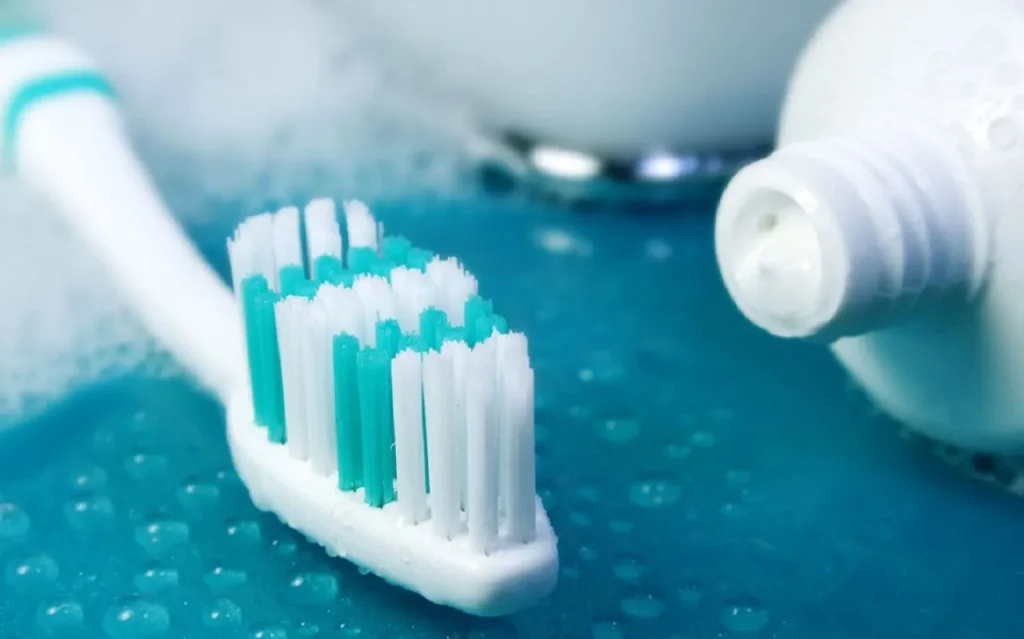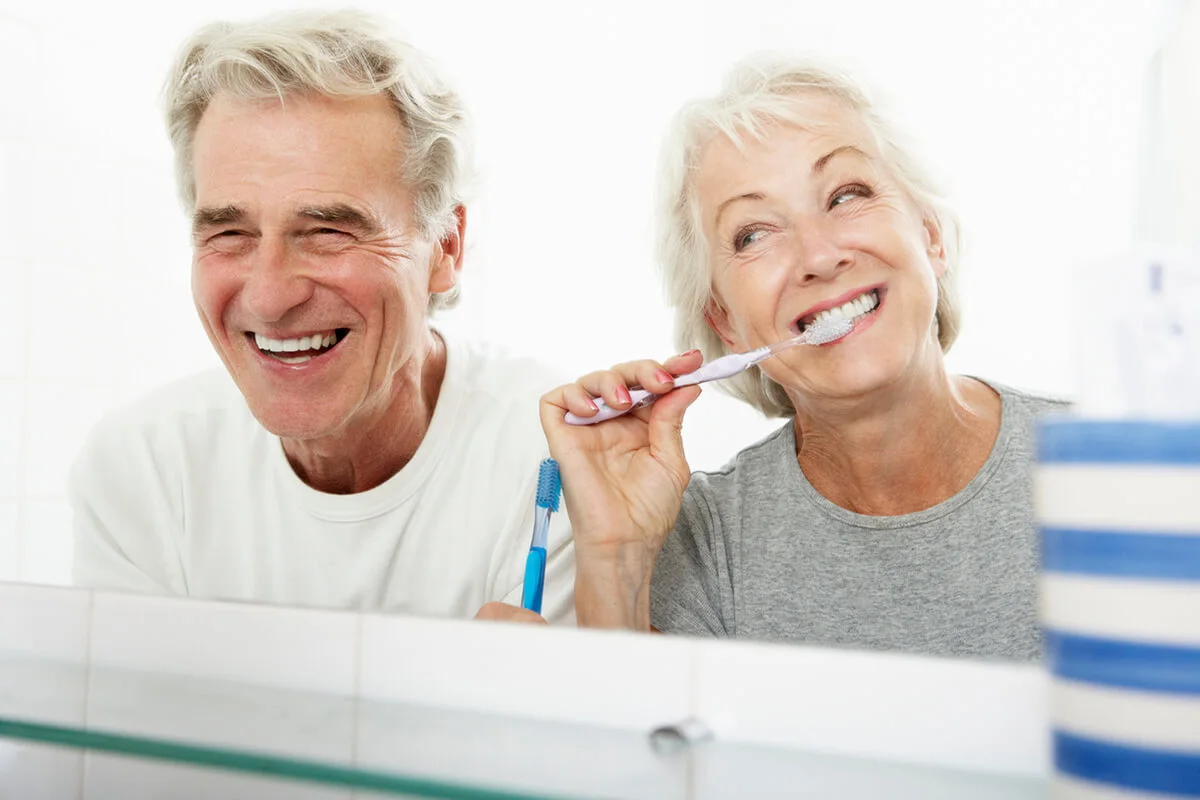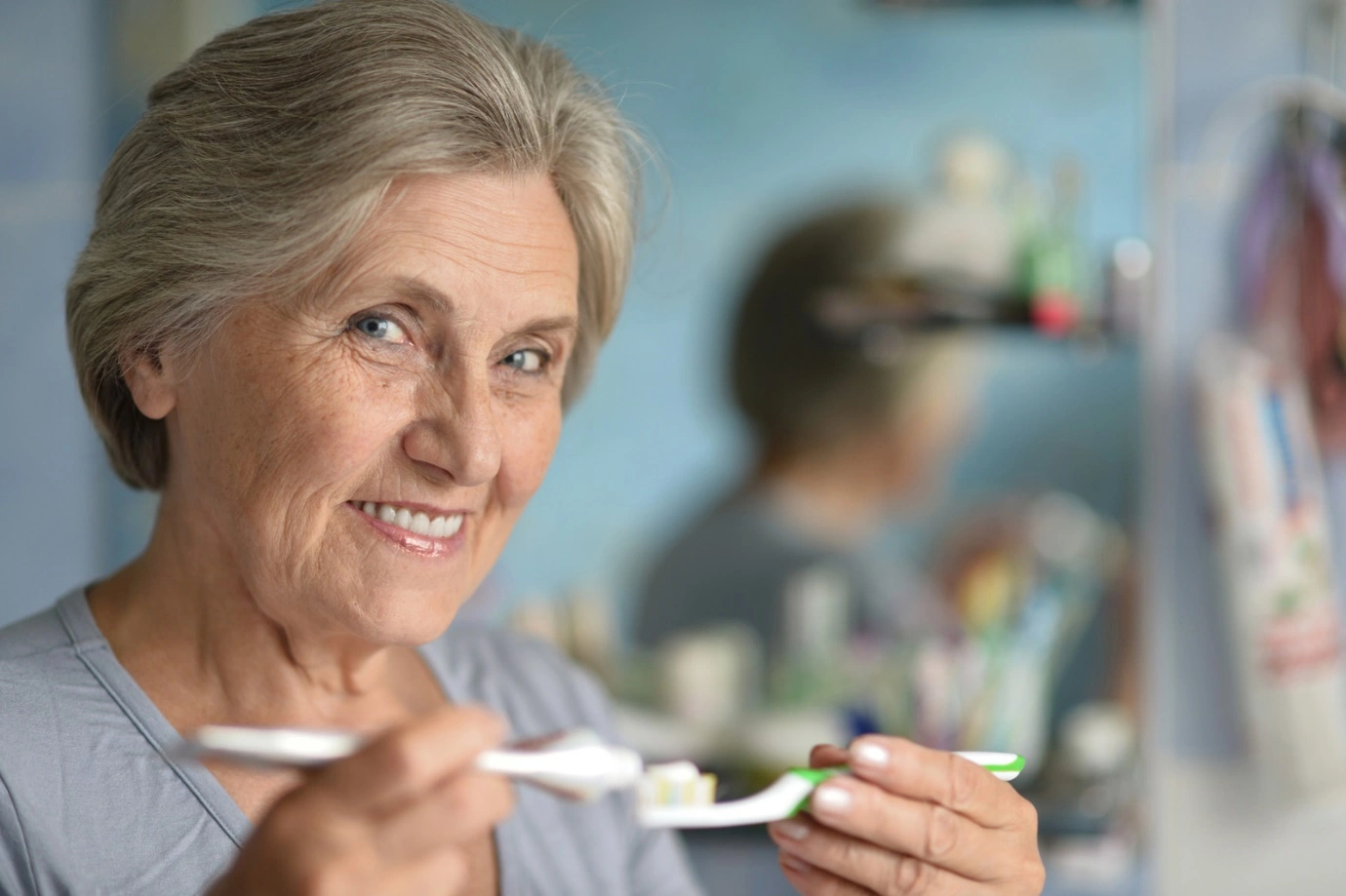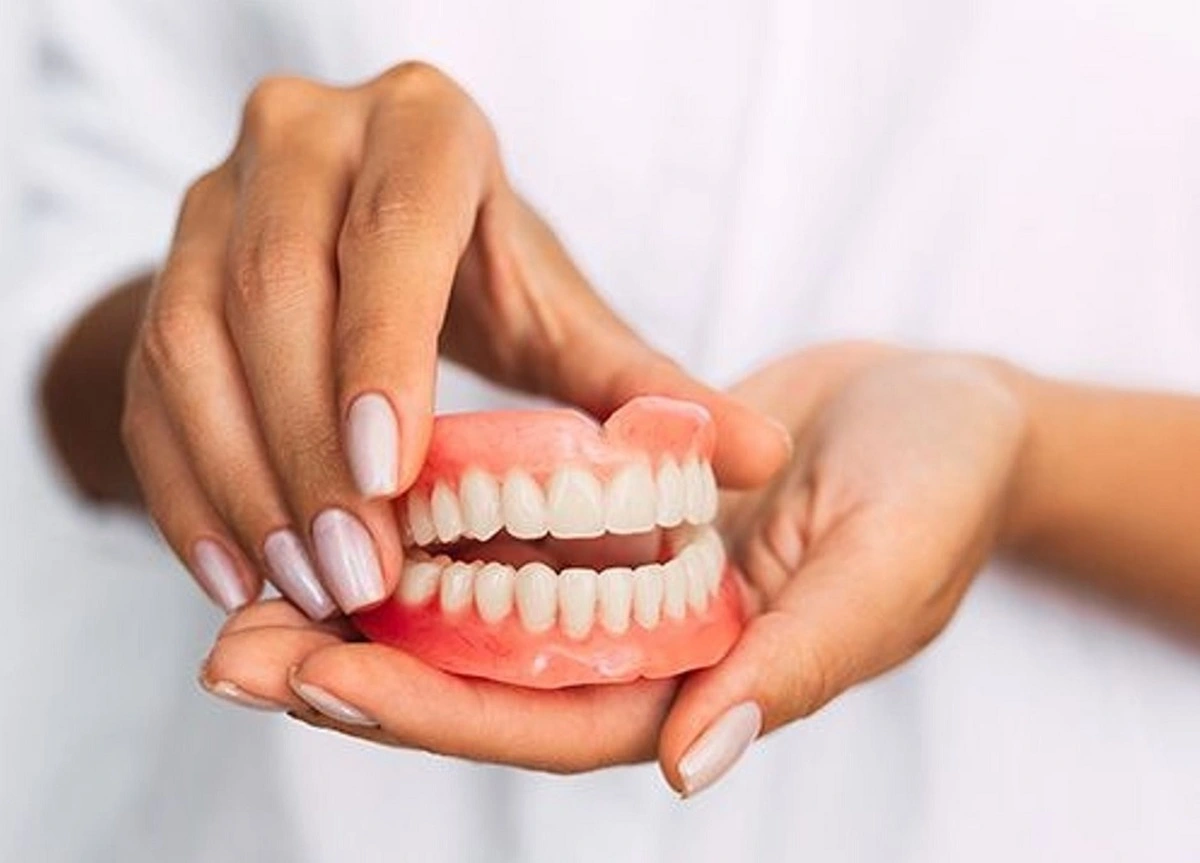
Dental Care for Seniors: Challenges and Tips
Individuals of any age can experience oral health issues, but maintaining good oral hygiene is particularly crucial for older adults due to underlying health conditions, difficulties in self-care, and physiological changes in the mouth. If you have elderly family members, it’s beneficial to remind them of essential practices of dental care for seniors or bathing tips for the elderly. In this article from humanhealthmag, we emphasize regular brushing and flossing or cleaning dentures for those who need assistance with these tasks.
Oral Health for Older People
People who experience significant functional changes in their bodies as they age are called elderly. Improvements in health conditions in recent years have led to an increase in the average life expectancy of people and the number of elderly people over 60 has increased. Therefore, these changes highlight the need to understand the physical and mental changes in the elderly and the impact that these changes have on the care and maintenance of oral and dental hygiene of this group.
There are concerns about oral health among elderly. You can ask the people who care for them to remind your elderly loved ones to brush and floss their teeth or clean their dentures. In some cases, caregivers may also perform brushing and other care. People who have difficulty using their hands or who have dementia may need the help of an elderly nurse.

Dental care for seniors is crucial as dental diseases often result from poor hygiene practices. Middle-aged individuals are more susceptible to these issues due to the weakening of their immune system with age, which can lead to numerous health problems if neglected. Elderly individuals require even more assistance, as they may struggle with self-care tasks on their own. This vulnerability increases due to medications commonly prescribed at older ages, which can cause dental issues.
Many elderly people have lost natural teeth and rely on dentures or prosthetics, leading to concerns such as gum problems and dry mouth. Medications for conditions like diabetes and osteoporosis can exacerbate these issues by contributing to periodontal diseases and dry mouth. However, prevention is possible through proper care and regular check-ups. It’s essential not to overlook the needs of elderly individuals in maintaining their oral health, especially considering the potential systemic impacts of poor dental hygiene.
What Can elderly People Do to Take Care of Their Natural Teeth?
In elderly people who have natural teeth, cleaning microbial plaque is the most important principle in caring for their oral and dental health at home. In addition to preventing tooth decay and gum disease, this practice will also make the mouth smell good. The correct way to brush your teeth according to the method previously explained is recommended for most elderly people with a soft toothbrush.
However, in elderly people who have suffered from gum recession (in certain areas of the mouth), the use of a very soft toothbrush is recommended, with circular movements on the tooth surfaces and gentle pressure in the areas of recession. The use of toothpaste is mandatory due to the benefits of fluoride and helping to remove plaque and color on the teeth (of course, provided that the toothpaste does not cause irritation).

Elderly individuals with arthritis often face difficulties when brushing their teeth due to stiffness, pain, or weakness in their hands and fingers. To address these challenges, several strategies can be employed:
- Electric toothbrushes are easier to maneuver and require less manual dexterity compared to traditional ones.
- You can make a non-electric toothbrush handle larger by wrapping sponge, elastic band, or tape around it for better grip.
- Use compressed rubber balls to enlarge the handle of a manual toothbrush.
- Attach popsicle sticks to the handle of a manual toothbrush to make it longer and thicker for easier handling.
- Consider purchasing digitally designed oral care tools like specialized toothbrushes or floss holders that are more ergonomic.
- If the elderly person experiences frequent bleeding in their mouth, using a soft-bristled brush may be beneficial.
- For those with sensitive teeth, using toothpaste specifically designed for sensitivity can provide relief.
Denture Care for Seniors
Familiarity with dental care for seniors is one of the most important things to consider in the field of oral health for older adults and preventing oral diseases. To maintain the health and longevity of dentures, it’s essential to follow these care tips:
Before putting in your dentures, inspect your gums in a mirror. Allow red or swollen areas to heal before reinserting them. If irritation persists, consult a dentist. Remove Dentures Regularly. Take out your dentures for at least six hours daily to give your mouth a rest and allow tissues to recover from any irritation. Ensure that your dentures fit correctly; if they are too large or small, do not tolerate them as they can cause serious damage. Schedule regular appointments with your dentist for professional cleanings and adjustments as needed. Never attempt to adjust or repair dentures yourself; consult a professional instead.

After meals, remove the denture and rinse it with water. Then, use a soft-bristled brush and toothpaste to clean all surfaces, especially those that come into contact with the oral mucosa. Never use abrasive powders; instead, you can use soap or mild dish soap with a soft brush. After cleaning the denture, rinse your mouth thoroughly with warm water or a saline solution and gently massage your gums.
- Always place a container of water under your hands when cleaning to prevent damage if dropped.
- Hold the denture firmly between thumb and index finger while brushing.
- Soak removable dentures in water overnight to prevent drying out.
- For disinfection, soak them weekly in a solution like diluted bleach (avoid using bleach on partials).
- Regular dental check-ups are crucial for adjustments and inspections
Cleaning Routine:
- Rinse your dentures after each meal.
- Clean them daily with a soft-bristled brush and mild soap or specialized cleaner.
- Soak them overnight in water or a cleaning solution.
- Rinse thoroughly before reinserting them into the mouth.
Dental Care for severely Physically Disabled Seniors
For severely physically disabled seniors or those unable to maintain their oral hygiene due to specific health conditions, caregivers should take the following steps:
When caring for a bedridden senior, place several pillows under their head so that their face is positioned in front of yours. Use a clean towel and a container on the patient’s chest under their chin. If the senior is in a wheelchair, stand behind them with one hand supporting their chin and head resting on your body. Place the towel across their chest covering their shoulders and position a container on the table in front of them or near if possible.
Follow recommended brushing techniques using a soft-bristled toothbrush and dental floss. If the patient’s lips are dry or cracked, apply Vaseline for moisturizing. Ensure regular dental check-ups are arranged through home visits if necessary to prevent complications like gum disease or infections. Additionally, consider using chlorhexidine-soaked gauze as an alternative cleaning method when traditional brushing is challenging.
Concluding Remarking
Dental care for seniors is a critical aspect of maintaining overall health and quality of life. With aging, physiological changes and increased vulnerability to oral diseases like gum disease, tooth decay, and dry mouth make proper oral hygiene essential. Regular brushing with a soft-bristled toothbrush, flossing, using fluoride toothpaste, and alcohol-free mouthwash can prevent many issues.
Additionally, routine dental check-ups are vital for early detection and treatment of potential problems. For those using dentures or prosthetics, proper cleaning and maintenance are necessary to avoid infections or discomfort. By prioritizing oral health, seniors can enjoy improved nutrition, better communication, enhanced confidence, and overall well-being.
Could you help us make this content even better? What do you love, and what can we improve? Share your thoughts below, feedback is the key to creating better content for YOU.

Frequently Asked Questions
What is recommended for oral hygiene in seniors?
Brushing twice a day and flossing once a day can help prevent gum disease and tooth decay. Using a soft-bristled toothbrush and fluoride toothpaste is crucial. Mouthwash can help eliminate bacteria in the mouth and freshen breath. Seniors should choose an alcohol-free mouthwash containing fluoride.
Why is dental care important for a senior?
Poor oral health can increase the risk of other health conditions such as diabetes, aspiration pneumonia, and cardiovascular disease. Maintaining good oral hygiene is essential for older adults.
How to clean an elderly person’s mouth?
To prevent aspiration, do not force the toothbrush into their mouth. Brush their teeth using the same regular brushing method as others. After brushing, use a floss and interdental brush to clean the interdental surfaces of seniors’ teeth.
What is the best mouthwash for seniors?
Green tea mouthwash is an excellent choice for a mouthwash product for elderly patients and is effective in removing plaque and bacteria. It is also safe for use in patients with dementia.
What are the methods of cleaning seniors dentures?
Regular rinsing with water, brushing, rinsing with chemical cleaners, rinsing with vinegar, and rinsing with tablets are among the most common methods of cleaning dentures.
What are the common oral and dental diseases of the elderly?
Periodontal disease, tooth decay, tooth loss, dry mouth, tooth wear, cancerous lesions in the mouth, oral diseases caused by diabetes, and receding gums are common oral and dental diseases in older adults.
